Three Husbands
Cast & Crew
Irving Reis
Eve Arden
Ruth Warrick
Vanessa Brown
Howard Da Silva
Shepperd Strudwick
Film Details
Technical Specs

Synopsis
After dying of a heart attack, Englishman Maxwell Bard floats up to Heaven, where he is greeted by an angel whose job it is to grant wishes to the deceased. Max asks for the opportunity to spy on his friends, who have gathered at a law office in San Francisco: Arthur and Jane Evans, Kenneth Whittaker and Dan McCabe are told by Max's lawyer Wurdeman that Max requested that the reading of his will be delayed. Wurdeman then gives Arthur, Ken and Dan identical letters in which Max confesses to having had affairs with their wives. While Arthur and Ken are shocked and angered, Dan laughs at Max's posthumous practical joke. Later, at a bar, Ken shows the letter to the bartender, who suggests that he go home and take his aggression out on his wife. At home, Arthur, meanwhile, recalls a gathering that took place at his house: When the phone rings, Max answers it and speaks for some time to the caller, only later admitting that it was Jane. The next morning, Jane tells Arthur that she will be attending the symphony with Max, but they instead go to see a risqué French film. When Max notices Arthur sitting in the theater with his mistress, advertising artist Mathilda Clegg, he blocks Jane's view of them in order to spare her feelings. Back at the bar, Ken also searches his memory for signs of his wife Mary's involvement with Max: After Max becomes ill, Mary spends long hours nursing him back to health. When Ken wants to take her out to celebrate their second wedding anniversary, Mary says she would rather stay home. Later, however, she receives a phone call from an unidentified caller and leaves abruptly. Ken's mother, who also lives in the house, then reveals her suspicion that Mary has gone to meet Max. Ken rushes to Max's house, creeps around the side and enters illegally, after which he is arrested by two policemen. Back at the bar, Ken tells the bartender that he has decided to follow his advice and confront his wife. Meanwhile, Dan returns home to his wife Lucille, but unlike Arthur and Ken, he is not the least bit upset by Max's letter. Later, however, Dan begins to reflect: Shortly after Lucille meets Max at a racetrack, she attends the meeting of a committee of which he is the chairman. Suddenly, Dan's attitude toward Max's letter changes, and he begins accusing Lucille of infidelity. Later, the three couples, Ken's mother and Mathilda are all summoned back to the law office. Finally, Wurdeman reads Max's will, which grants Mathilda two years' worth of tuition at an exclusive school in Paris, provided that she live there. Ken's mother, Jenny Bard Whittaker, who is also Max's cousin, receives their grandfather's house and property in Columbus, Ohio, also with the stipulation that she live there. Then, through Wurdeman, Max reveals that he wrote the deceptive letters so that his friends would appreciate their wives anew. Back in Heaven, the sound of Max's laughter echoes through the clouds.

Director
Irving Reis
Cast
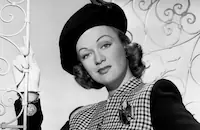
Eve Arden
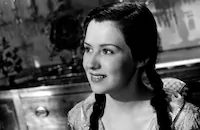
Ruth Warrick
Vanessa Brown
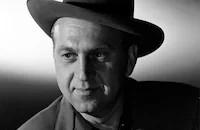
Howard Da Silva

Shepperd Strudwick
Robert Karnes
Emlyn Williams

Billie Burke
Louise Erickson

Jonathan Hale
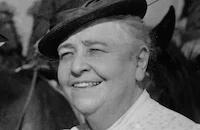
Jane Darwell
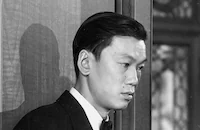
Benson Fong
Frank Cady
Dorothy Wolbert
Ralph Peters
Marta Mitrovitch
Jill Kraft
Jerry Hausner
Dorothy Vaughan
John Dierkes
Alvin Hammer
Richard Flato
Stanley Prager
William E. Simpson
Maurice Marsac
Gay Gayle
Tom Hanlon
Crew
Hollis Barnes
Leon Becker
Edward G. Boyle
Vera Caspary
Vera Caspary
Mac Dalgleish
Edward Eliscu
Edward Eliscu
Emmett Emerson
Herschel Burke Gilbert
Herschel Burke Gilbert
I. G. Goldsmith
Ben Hersh
Joseph Justman
Joseph King
Reata Kraft
Anthony Z. Landi
Joseph Mullendore
Gus Norin
Frank Planer
Louis H. Sackin
Rudolph Sternad

Film Details
Technical Specs

Articles
Ruth Warrick (1915-2005) - Ruth Warrick, (1915-2005)
She was born on June 29, 1915 in St. Joseph, Missouri. After attaining a degree in theatre from the University of Kansas City, she left for New York, where in 1938, she joined the Mercury Theater troupe, headed by a young artist on the rise by the name of Orson Welles. When Welles prepared to film Citizen Kane (1941) he took several players from his Mercury Theater (Joseph Cotten, Everett Sloan, Agnes Moorehead) and of course, Ruth Warrick. She made her film debut in Welles' cinematic epic as Emily Norton Kane. Indeed, to many film buffs, Warrick's icy charms are indispensable to the celebrated montage sequence opposite Welles at the breakfast table; particularly when he broaches the subject of her husband's infidelity:
Emily Kane: Charles, people will think...
Charles Kane: What I tell them to think!
Warrick received fine reviews for her performance, and she had good roles in her next two films The Corsican Brothers (1941), with Douglas Fairbanks Jr., and Journey Into Fear (1942), opposite Joseph Cotton. Sadly, Hollywood, not knowing what to do with a well-trained, mature actress like Warrick, began to cast her into routine, forgettable fare: Mr. Winkle Goes to War (1944), China Sky (1945), and Swell Guy (1946). Disney's Song of the South (1947), was a box-office hit, and was her best film in a while, but overall, the material she received over the next few years, simply wasn't worthy of her talents.
Things turned around for her in the mid-50s, when Warrick discovered the medium of television. She had regular roles on The Guiding Light (1953-54), As the World Turns (1956-60), Father of the Bride (1960-61), and was unforgettable as the sinister housekeeper, Hannah Cord, in Peyton Place (1965-67). Yet it was her 35-year run in the role of Phoebe Wallingford in All My Children (1970-2005), that Warrick achieved her greatest triumph. As the rich, intrusive matriarch of the fictitious, affluent town known as Pine Valley, Warrick found a role that could be at once gloriously hammy and quietly conniving - qualities that highlighted her renown versatility as an actress. To honor her contribution to television, Warrick received a lifetime achievement award from the Daytime Emmys last December. She is survived by three children, a grandson, and six great-grandchildren.
by Michael T. Toole

Ruth Warrick (1915-2005) - Ruth Warrick, (1915-2005)
Quotes
Trivia
Notes
According to SAB, producer I. G. Goldsmith and Gertrude Purcell collaborated with Vera Caspary on the first draft of the film's treatment. A handwritten note on the SAB states that according to associate producer Anthony Z. Landi, Goldsmith did not want credit for the original story, and that Caspary (who was married to Goldsmith) should receive sole story credit. Purcell's contribution to the final film has not been determined. Caspary also wrote the screenplay for the 1949 Twentieth Century-Fox film A Letter to Three Wives (see entry above), whose basic story premise is similar to Three Husbands. A December 21, 1949 Hollywood Reporter news item reported that Goldsmith registered the story idea with the Screen Writers Guild on March 1, 1949 under the title Letter to Three Husbands, after discussing any possible conflict with Twentieth Century-Fox. When Twentieth Century-Fox registered the title A Letter to Three Husbands the next day, however, Goldsmith changed his title to Three Husbands.
According to information in the file on the film in the MPAA/PCA Collection at the AMPAS Library, the Breen Office objected to the characters' casual attitude toward adultery, and to the idea that "Arthur" would be happily reunited with his wife after having engaged in an affair with "Mathilda." Goldsmith agreed to make it clear that no adulterous relationship existed between these characters, and to clean up the character "Max" by removing dialogue that conveyed his "loose sexual nature." A Hollywood Reporter news item and the Independent Film Journal review state that this was Welsh actor Emlyn Williams' first American film; although Williams had previously appeared in several American productions shot in England, Three Husbands was his first film made in the U.S.














